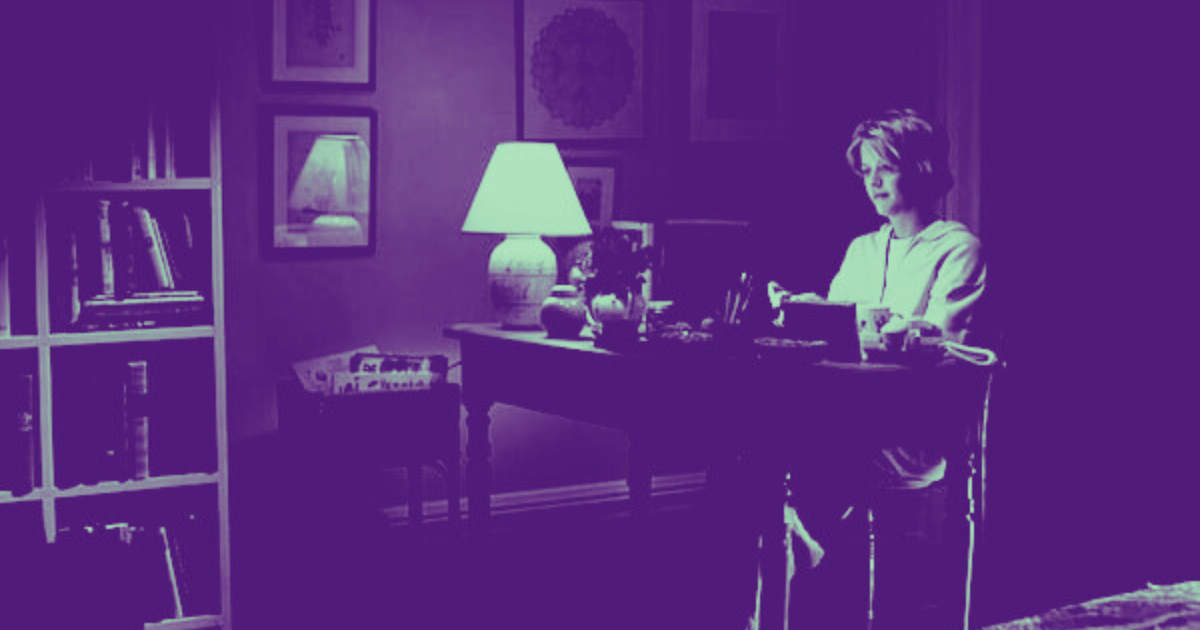- ill-defined (adj.)
- Posts
- fox (v.)
fox (v.)
on the surreality of watching You've Got Mail (1998) as an allegory

You've Got Mail, perhaps the most 1998 movie one could conjure, a movie I love to hate to love, is a casually Shakespearean romantic comedy about cyberstalking, gentrification, toxic monogamy, and how love can overcome any obstacle, even if wearing the girl down means you gotta force her multigenerational small business to fold.
It's also about the early days of the internet. Imagine saying this, as protagonist Kathleen Kelly does, about email:
I turn on my computer. I wait impatiently as it connects. I go online and my breath catches in my chest until I hear three little words: "You've got mail." I hear nothing, not even a sound on the streets of New York. Just the beat of my own heart. I have mail...from you.
The movie plays this straight. Kathleen is an email romantic. But of course the joke's on her, as her credulousness and stubborn optimism becomes the basis for her downfall (which of course the movie plays as good for her too, because romantic comedies do that).
I find it surreal to watch You've Got Mail from the vantage point of 2025's fetid social internet hellscape. And yet there is the seed of something impossibly, ironically, quaintly prophetic (or maybe, just allegorical) under the 90s cynicism of You've Got Mail's Manhattanites. By cynicism, I mean that every character in this movie does not ultimately care, not really, about anything or anyone. Everyone is sort of a hypocrite who compromises on their stated values whenever it's expedient; everyone is just trying to make their life as frictionless as possible; everyone responds to other people's pain with annoyance or amusement if they don't ignore it entirely. Except for Kathleen Kelly. Until the ending.
Though most of the movie takes place in meatspace, it frames the narrative with the characters corresponding over AOL's email and instant messaging service, through which means Joe Fox and Kathleen Kelly are cheating with each other anonymously, charmingly swapping flirty banter about their New York City life. Of course, they're falling in love. The irony, the evil engine of this beast, is that Joe is the powerful, flippant scion of a book megastore dynasty while Kathleen is the second-generation owner of a tiny children's bookstore beloved by the community. Fox Books is all but fated to put hers out of business with its shiny new location down the street, and most of the movie's plot follows the exchange of barbs between these two parties until Fox Books inevitably dominates, forcing the Shop Around the Corner to fold despite efforts to sway public opinion. When the anonymous email lovers decide to meet IRL, Joe learns Kathleen's identity without giving away his, manipulating the situation first out of animosity and then as a smitten cyberstalker who realizes he wants to woo her to his side despite being publicly at war. In a series of moves cast by the film as secretly romantic, Joe spends the final act of the film grooming and manipulating Kathleen both as himself and his incognito email persona, and instead of murdering him in cold blood in the park when the elaborately orchestrated reveal occurs, she melts. "I wanted it to be you. I wanted it to be you so badly," she says, improbably, horrifically, stupidly. Joe Fox, vampire-like, has gradually sucked away every reason for Kathleen to maintain her ethical framework until she is worn down enough to believe that she can love this ghoulish wit with a heart of gold.
Is this not kinda the story of the internet?
Frank, Kathleen's boyfriend at the beginning of the film, characterized as a clownishly navel-gazy opinion writer, wielding postmodern philosophy terminology to cover for his intellectual incoherence, declares "the end of Western civilization as we know it" over the news that "the entire workforce of Virginia" didn't get any work done for six weeks because they kept playing Solitaire on their computers. I would normally dismiss the remark as hyperbole (I mean, it's Frank, his job is hyperbole) if the movie didn't repeat the line a few scenes later in the mouth Joe Fox as he gleefully remarks on how his book megastore will overcome the hatred of the locals through the monopolistic powers of discounts, convenience, and coffee. He jokes about putting up a sign that says "Coming soon, a Fox Books Superstore, the end of civilization as you know it."
As much as it makes me cringe to give this movie any prophetic insight, it was right. Not about technology per se, but the unholy union of monopoly capitalism and the web. Does not the horror story of Joe and Kathleen run parallel to the enshittification of the internet? Like Joe Fox, the Metas and Googles wooed us with connection and convenience and discounts and frictionless digital products, until they trapped us into their data-stealing, surveillance-state nightmare, leaving people with no alternative (seemingly), gaslighted into a vampiric relationship that has since spread through the culture, distorting politics, fracturing the public and feeding all of it back into the machine until now OpenAI and its heathen brethren synthesize slop from all that data we gave up, providing tools for managers, CEOs, bureaucrats, and presidents to squeeze, threaten, and otherwise immiserate our jobs, deny us healthcare, and justify abandoning milquetoast green energy initiatives in order to burn our world up even faster. Meanwhile the Kathleen Kellys of the world whisper, tears in their eyes, "I wanted it to be you so badly."
End of civilization as we know it.